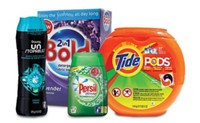Advertisement
Grab your lab coat. Let's get started
Welcome!
Welcome!
Create an account below to get 6 C&EN articles per month, receive newsletters and more - all free.
It seems this is your first time logging in online. Please enter the following information to continue.
As an ACS member you automatically get access to this site. All we need is few more details to create your reading experience.
Not you? Sign in with a different account.
Not you? Sign in with a different account.
ERROR 1
ERROR 1
ERROR 2
ERROR 2
ERROR 2
ERROR 2
ERROR 2
Password and Confirm password must match.
If you have an ACS member number, please enter it here so we can link this account to your membership. (optional)
ERROR 2
ACS values your privacy. By submitting your information, you are gaining access to C&EN and subscribing to our weekly newsletter. We use the information you provide to make your reading experience better, and we will never sell your data to third party members.
Business
Cosmetic Appeal
More chemical companies see personal care as an outlet for their products and technologies
by Michael McCoy
June 5, 2006
| A version of this story appeared in
Volume 84, Issue 23

The siren song of personal care plays loud and long for big chemical makers seeking new business opportunities. Two such companies just announced pushes into the personal care ingredients market, but smaller players in the field say they aren't concerned about being crowded out, despite the newcomers' deep pockets.
Air Products & Chemicals made its personal care ingredients debut at the Society of Cosmetic Chemists (SCC) Suppliers' Day in Edison, N.J., last month. Eastman Chemical was at the event as well, a month after making a splash with its own personal care ingredients business at the In-Cosmetics trade show in Barcelona.
Both companies have recruited industry veterans to lead their efforts, and both say they intend to draw on their diverse technology portfolios to deliver fresh ideas to the personal care market.
Air Products' initiative is being led by Solomon Lemma, who joined the company last summer from Noveon, where he helped build up a successful personal care raw materials franchise. Indeed, Lubrizol acquired Noveon in 2004, in part to expand into the personal care business.
Air Products' booth at Suppliers' Day featured the company's initial offering to the industry: a line of heat-triggered alkyl acrylate polymers licensed from Landec Corp. According to Lemma, the polymers, sold under the Intelimer name, can adjust the look and feel of cosmetics when activated by body temperature or a styling tool. In addition, he said, they modify the oil phase of personal care products, whereas most thickening polymers work in the aqueous phase.
Lemma explained that licensing new technologies such as Intelimer is one part of a three-pronged personal care strategy for Air Products. The company will also be developing surfactant and polymer products in its own labs, he said, while looking for acquisitions and other external business opportunities.
At Eastman, the personal care effort is being led by Global Market Development Manager James McCaulley, a Ph.D. chemist who joined the company two years ago from Cognis' care chemicals business. McCaulley said Eastman is trying to build a "small but energetic" personal care ingredients business around three areas: polymers and functional film formers, delivery and time-release systems, and cosmetic active ingredients.
At Suppliers' Day, Eastman was promoting NutriLayer, an active ingredient derived from rice bran oil that is touted as delivering both moisturizing and antioxidant benefits to skin creams. Though NutriLayer is a new product for Eastman, McCaulley noted that it is a cousin to the NuTriene rice bran oil-derived antioxidants that Eastman has been selling into the nutrition market.
The personal care ingredients field is already populated by numerous diversified chemical companies, including Noveon, Cognis, Rohm and Haas, Degussa, Uniqema, and International Specialty Products. But a walk down the aisles at Suppliers' Day makes clear that the majority of the players in the business are smaller, often privately owned, firms that are focused on personal care.
Inolex Chemical, for example, is a century-old Philadelphia-based company with about 100 employees. Roughly half the firm's nearly $100 million in annual sales is to the personal care market, while the other half is split between lubricant esters and polyurethane intermediates.
Marketing Manager Daniel Winn joined Inolex from BASF four years ago, where he worked in cosmetics. Winn said he's seen large-company enthusiasm for the personal care ingredients market wax and wane over the years, and he isn't convinced that the recent entrants will be any better about sticking with it for the long term.
Winn points out that sales volumes for personal care ingredients are typically much lower than those for chemicals sold into markets like detergents or coatings. "It's hard for a big company to find that next big product," he said. "Smaller companies find it easier to meet targets for growth that are meaningful for them."
Big companies often tout their ability to pull technologies from various business units and direct them at a new market. But in reality, Winn contends, chemists at such firms have little incentive to contribute to businesses other than the ones that pay their salaries. At Inolex, in contrast, one R&D group supports all three business units, he said, resulting in crossover ingredients such as Lexorez, a waterproofing ingredient for sun care products that started out as an industrial polymer.
Aware of this tendency, Eastman's McCaulley is making a concerted effort to get buy-in from his own company's scientific staff. He said he makes technical presentations to groups of Eastman chemists just as he does to potential customers. He's also taking steps to ensure that Eastman innovates quickly enough to serve the fast-moving personal care business. "Every big company wants to be nimble, but it's difficult," he acknowledged.
Mary Clarke, sales development director at long-time personal care ingredients supplier Uniqema, admitted that a large company like hers can't always react as quickly as a smaller one. "We're not going to turn a manufacturing plant on a dime like a smaller firm can." But Uniqema brings other strengths, she said, like in-depth market research on personal care trends and an understanding of global regulatory changes.
At Mason Chemical, a family-owned quaternary chemistry specialist in Arlington Heights, Ill., Commercial Development Manager Mike Curtis emphasizes the continuity and experience that small companies offer. "Mason has been Mason for 40 years," he said, contrasting it with large companies that sometimes seem to be in a constant state of corporate upheaval.
Curtis himself has 25 years in the quats business and previously worked for suppliers such as Mazer, S.C. Johnson, and Lonza. Mason historically sold its quats mainly to the disinfection and sanitation markets, but in recent years it has been making a concerted push into personal care, Curtis said, to the point that the market now accounts for some 20% of annual sales.
Although Curtis says Mason can go head-to-head with its larger corporate brethren, he sees the two breeds of companies as complementary. Though a quat maker like Lonza tends to pursue Procter & Gamble, Clorox, and other big customers, Mason typically serves the numerous midtier companies that populate both the cleaning and personal care markets.
Size aside, any chemical company seeking success in personal care ingredients must be prepared to serve a quirky, fickle customer base. As Clarke said, "The demand for newness is very high and product life cycles are extremely short. It's not like the industrial market, where your paint remover doesn't need to say 'new and improved' every six months."







Join the conversation
Contact the reporter
Submit a Letter to the Editor for publication
Engage with us on Twitter